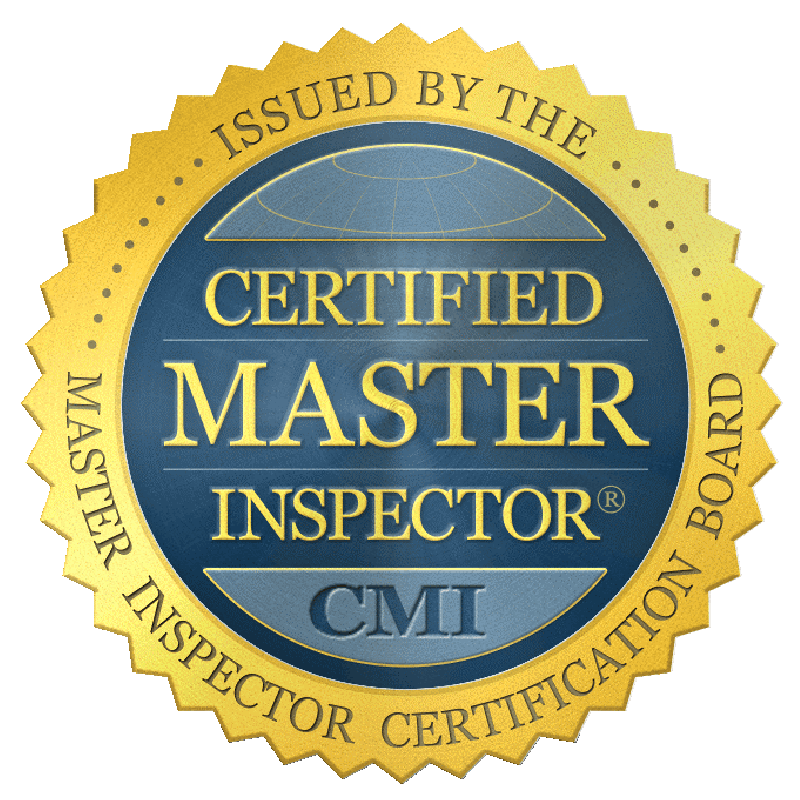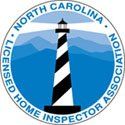Common Issues in Your Home
Roofing Issues
Of all the problems you can encounter around the house, roofing problems are by far the sneakiest. Leaks can develop unnoticed for years causing rot, mold, warping and other expensive damage.
Experts recommend that you go into your attic or crawlspace at least once a year after a rainstorm to check for leaks and visible water damage. Special attention should be paid to areas where you have flashing (the metal or plastic weather stripping that will be around chimneys, pipes, vents, roof planes and eves) because this is typically the most likely area to develop leaks. It is also recommended that you visit the surface of your roof yearly (if possible) during good weather to look for any loose, missing, eroded, warped or otherwise damaged shingles and to check the overall condition of your roof.
You should also clean rain gutters and downspouts of leaves and other debris regularly, preferably in the fall once the trees are bare. While doing this, check for mineral deposits which could indicate the erosion of asphalt shingles.
Many people would prefer not to inspect their roofs themselves. Roofs can be pitched at very steep angles and pose quite a challenge to those leery of heights. Inspecting the roof from an attic or crawlspace full of spiders and other creepy inhabitants may not be too attractive either. Another issue is most people are unsure of what to look for. Leaks can be hard to track water travels downward and the damage can be far from the actual leak. Because of this, hiring an expert to inspect the roof for you is something you should consider.
HVAC Issues
Problems with heating and cooling systems can range anywhere from elevated operating costs due to an older, inefficient system to hazardous malfunctions. It is important to be familiar with your heating and cooling systems and to maintain them properly to avoid any dangerous conditions or costly repairs.
One of the most important things you can do to maintain the efficiency of your heating and cooling systems as well as the air quality in your home is to make sure that your ducts and filters are cleaned or replaced regularly. Duct cleaning takes the expertise of a professional. If you need to find a duct cleaning service in your area, this link is a good resource: https://www.nadca.com/zm2/search1.asp.
It’s a good idea to also clean your registers and vents regularly between your duct cleaning service visits. This can be done easily by cleaning and removing the registers and then vacuuming out the ducts as far as your vacuum hose can reach.
There are several easy and inexpensive things you can do yourself to maintain the efficiency of your heating system. If your heating system is a forced air furnace, you should clean or change the filter frequently (every 2-3 weeks during the cold months). If you have a radiator, you will need to bleed it of trapped air that would prevent the water from running through the system efficiently. You can do this by opening the bleeding valve until water comes out and then closing it be careful as the steam and water is very hot. Be sure to have something handy to catch the water. If you have a hot water heating system, you’ll need to clean the boiler by opening the drain valve until the water runs clear. This should be done approximately once a month.
You should also do some regular maintenance on your cooling system. For central air conditioners, it’s a good idea to hire a professional service to give your system a check-up before the hot months begin. This usually involves a thorough cleaning of the air conditioning unit and a refill of the coolant if needed. Monthly, you should also check the unit for blockages and remove any vegetation growing around it that could interfere with its proper functioning. You should also clean or change the filter and check the condensate drain at least monthly. For window units, you should clean or replace the filter at least monthly, bi-weekly during the hottest months. You should also check the condensate drain to make sure that all moisture is draining properly.
Gas and oil furnaces and boilers should be professionally cleaned and serviced every year to assure safe and proper operation.
If your HVAC systems run on natural gas, make sure you know where your gas shut off valve is in case you need to close it. You should also make sure to keep an adjustable wrench handy for this purpose.
If you ever smell gas, follow the below steps:
- Evacuate your home.
- Once everyone is safely out of the home, shut off the gas supply (if possible to do safely) from the external shut off valve (this will be located near your gas meter).
- Call the utility company or emergency service (911) to report the leak.
Hidden Water Damage
Water is a powerful force. Any doubt of this fact can be erased by a simple visit to the Grand Canyon. And while your home is in no danger of becoming one of the Seven Wonders of the World, water can wreak havoc on a much smaller scale.
Water damage can come from several sources: floods, burst pipes, leaky roofs, seepage, etc. Many types are obvious, as is the damage caused by them. But even if you can’t see the damage right away, a slow flow of water can often be worse than obvious leaks. Left untreated, it can cause:
- Pipe corrosion
- Foundation damage
- Foul odors
- Mold
- Extensive Structural damage, etc.
Repairing hidden water damage can be an even greater challenge. Depending upon the source of the damage, it may or may not be covered by homeowners insurance. In the case of mold, getting rid of the problem may be a monumental undertaking.
How can you protect yourself from this menace? A professional inspection can help.
Detecting leaks early before damage occurs is the best line of defense and it can potentially save you thousands of dollars in the future.
If damage has already occurred it is critical to know this and the extent of the damage prior to buying the home. All damage is repairable but it is often expensive to repair.
Plumbing Issues
Plumbing problems usually revolve around one of three things: clogs, leaks, or drips. It pays to be familiar with your plumbing system so you can minimize the damage caused by plumbing problems as well as fix minor problems on your own. he most important thing you can do is find out where the main water shutoff valve is and how to turn it off. This is usually either outside your home or in your basement or crawlspace. If you can not find it or don’t know how to turn it off, contact your utility company and have them show you. If any tools are necessary to turn off your water, keep them handy. Being able to shut your water off at the main valve can be vital to reducing damage to your home if a pipe were to burst.
You should also check each plumbing appliance (sinks, toilets, etc.) for their own shutoff valves and verify they work. If the valves fail to turn off water to the appliance, you should have them fixed or replaced by a professional plumber. These valves come in handy when the need arises to repair individual appliances. If an appliance has no valves, you will need to shut off your water at the main valve to repair it.
Septic Tank Inspection
If you are buying a home with a septic tank, you should consider having it inspected by a professional septic contractor. Our standard home inspection does not include this type of specialized, intrusive inspection. To properly inspect the system, the contractor will need to dig holes to access the underground parts of the system. This will include inspecting the tank, as well as the leach field.
It makes good sense to have the tank pumped at the time of this inspection. A professional septic contractor can perform both the inspection and pump the tank, killing two birds with one stone and assuring that you begin with an empty tank and a system that has been inspected. Often, you can negotiate with the seller to have them pay for the pumping.
Termites and Other Pests
Termites and other wood destroying insects such as carpenter ants can do massive damage to a home and greatly impact its value. In humid areas where termites are a problem, it’s not unusual to find many homes that have been virtually hollowed out, their wood siding turning to dust at a touch.
How do I prevent termite infestation?
There are many steps you can take toward preventing infestation if you know what termites look for and take steps to make your home less attractive to them.
Termites are ground or subterranian insects that look for habitats that provide food, moisture and shelter close to the ground. Any place where wood meets ground qualifies, especially if the soil in that area stays moist. Correcting this situation may require re-grading to separate soil from any wood around your home. Since mulch and many other landscaping materials cause the soil to remain moist, you should make sure to minimize mulching around your foundation or using a mulch or ground cover that is not a wood product. Some experts recommend mulching no closer than a foot from your home’s foundation. You should also stack your firewood away from your home, preferably by several feet. Make sure that gutters and downspouts are in good condition and keep moisture from accumulating. You should also make sure to eliminate any moisture problems in and around your home, especially in basements and crawlspaces.
You can also hire professional termite exterminators to apply chemical treatments that protect your home. Be sure to find out how long the treatments last. The chemicals on the market today generally protect your home for up to 5 years.
How do I know if my home has termites?
It takes an expert to detect hidden termite damage. General home inspections do not typically include a termite inspection. It is highly recommended that you get a termite inspection in addition to your general home inspection.

